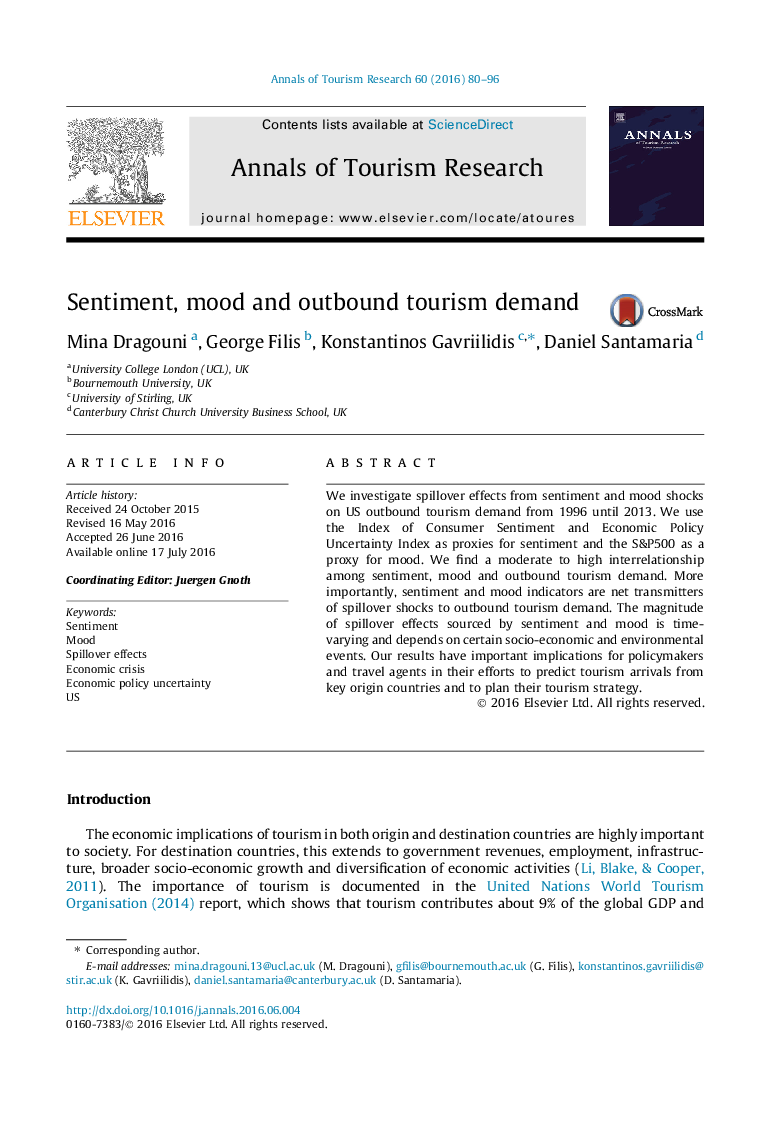| Article ID | Journal | Published Year | Pages | File Type |
|---|---|---|---|---|
| 1006935 | Annals of Tourism Research | 2016 | 17 Pages |
•We examine the relationship among sentiment, mood and outbound tourism demand.•The total spillover index fluctuates between 25% and 55% during the sample period.•Sentiment and mood are transmitters of spillover shocks to outbound tourism demand.•The magnitude of spillover effects is time-varying.•The size of spillover effects depends on socio-economic and environmental events.
We investigate spillover effects from sentiment and mood shocks on US outbound tourism demand from 1996 until 2013. We use the Index of Consumer Sentiment and Economic Policy Uncertainty Index as proxies for sentiment and the S&P500 as a proxy for mood. We find a moderate to high interrelationship among sentiment, mood and outbound tourism demand. More importantly, sentiment and mood indicators are net transmitters of spillover shocks to outbound tourism demand. The magnitude of spillover effects sourced by sentiment and mood is time-varying and depends on certain socio-economic and environmental events. Our results have important implications for policymakers and travel agents in their efforts to predict tourism arrivals from key origin countries and to plan their tourism strategy.
